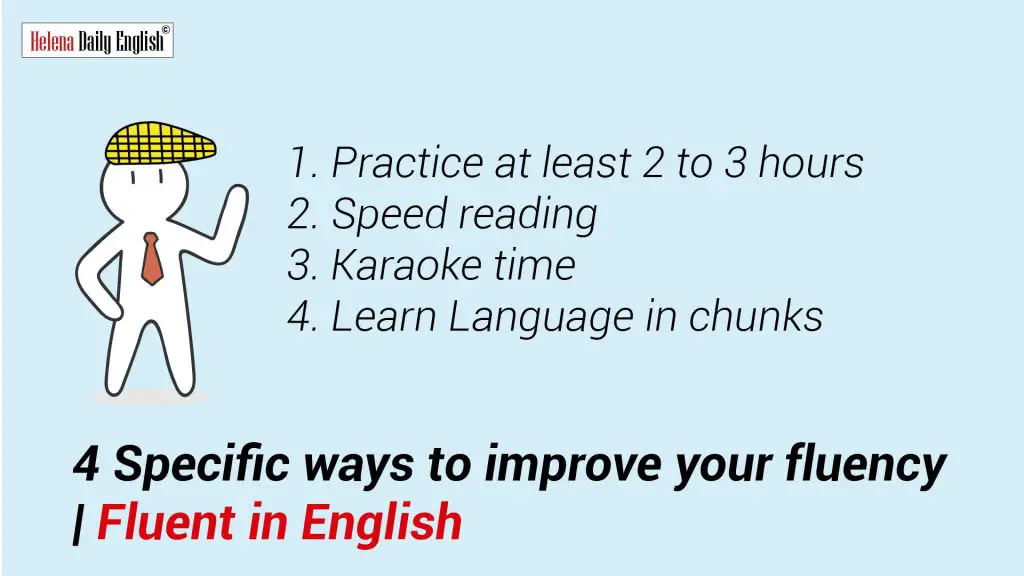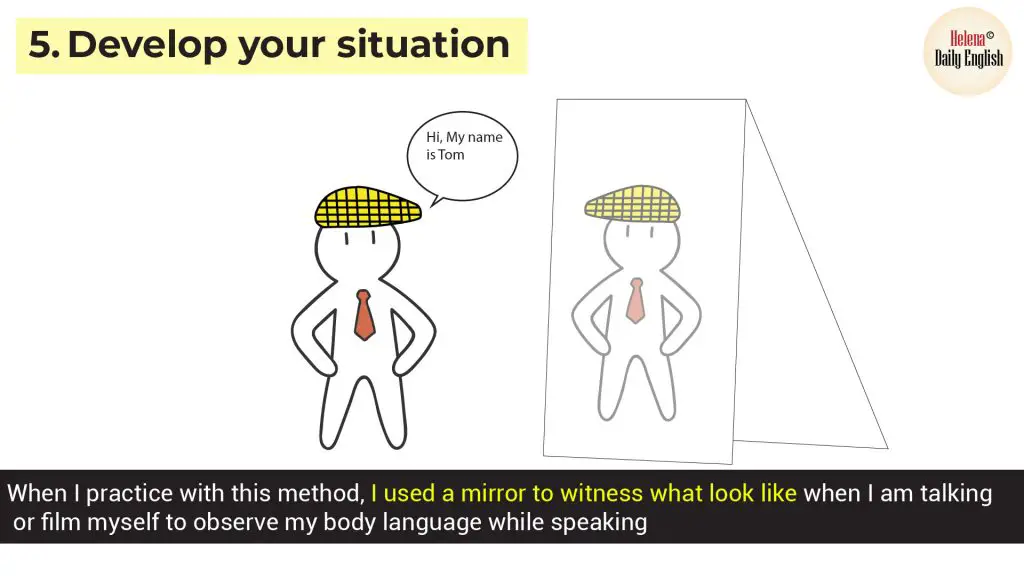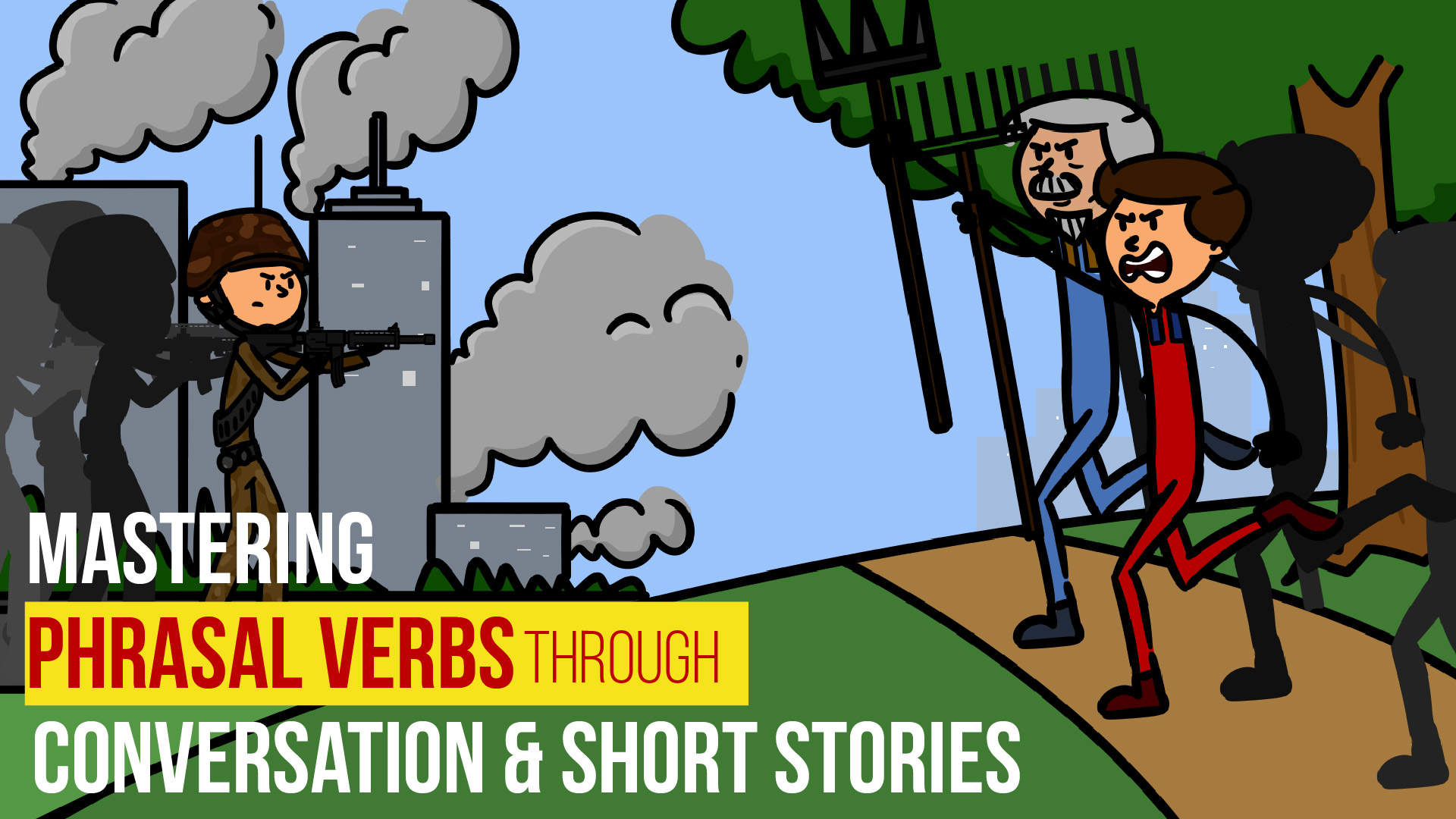4 Specific ways to improve your fluency | Fluent in English
Hi everyone,
According to Cambridge Dictionary: Fluency in a language means being able to speak a language easily and well, or (of a language) spoken easily and without many pauses.

This post will focus on your fluency. I have received so many questions about speaking skills. And many of you are struggling with your fluency. You may learn grammar so hard and try to remember so much vocabulary, but it still takes you a lot of time to speak out a full sentence. Even sometimes you don’t know how to express your idea and your speaking is full of filler words like oh…um…I will help you to change this situation.
First, you have to understand clearly “what is fluency?”.
Many people misunderstand that fluency means you speak at a high speed, high speed is similar to high fluency. Sometimes, many people rely on your fluency to judge whether you say well or not. However, fluency is defined explicitly as the fact that you keep a steady pace of your speech without pausing or pausing for too long, no matter how fast or slow you speak. You can watch some of the president’s speeches. They usually speak quite slowly for everyone to follow, but there isn’t any problem with their fluency, right? So fluency’s keyword is not speed but stability.
Becoming fluent in English can take many years, but here are some tips to help you sound as natural as possible in speaking exams.
1. Practice at least 2 to 3 hours per week.
Every skill can be improved by practicing. You may be familiar with this advice, but I still need to emphasize it to you. You probably know it’s right, but you still hesitate to do it. Don’t worry because I have made a video to guide you to practice English speaking alone without being bored.
- Easy tips for improving your English speaking skill (IMITATION method)
- How to practice English speaking on your own

You should have a minimum of 2 hours of practice per week which is equivalent to about 15 minutes of speaking English per day.
2. Speed reading
You can choose any text for yourself. You need to make sure that the passage doesn’t contain too many new words. Read the passage and record yourself, measuring the time and speed of your reading. Then read the passage again. At each reading, try to break your record.
English is a language that requires you both physically, I mean you will need a flexible combination of your lips, teeth, and tongue to get the correct pronunciation.
Sometimes your difficulty comes from the fact that your native language doesn’t require as much of this combination as English. Therefore, this exercise will train your mouth to be more flexible with English sounds.
3. Karaoke time
Why don’t you take advantage of your favorite song to practice your speaking skills? Choose any song you like.

For example, I really love the song “My Heart Will Go On“
Then look for its lyrics. If you can’t find it, just type the name of the song, and add the lyrics behind it. The last thing to do is enjoy the melody of the song and sing along. This exercise is similar to reading text. However, the more difficulty lies in the fact that you will need to keep up with the speed of the song.
4. Learn Language in chunks
A fairly common mistake that reduces your fluency is that you learn single words. When you want to express a certain sentence, you will get the idea of your mother tongue in your head, and then you will try to translate them into English. This process will take you a lot of time. When there’s a word you don’t know, you’re stuck there.
If you learn by phrases, you will not encounter this situation. Let’s take some examples. When you try to say something like:
- I will come to visit you as soon as possible
- I highly recommend it to you
- She is getting tired of doing the same thing every day
If you try to learn by word, not by phrase, you have to translate:
- I/ will come/ to visit/ you/ as soon/ as possible
- I/ highly/ recommend/ it/ to / you
- She/ is getting/ tired of/ doing/ the same/ thing every day.
While if you learn in chunks you only have to remember:
- I will/ come to visit you/ as soon as possible
- I/ highly recommend it to you
- She/ is getting tired of/ doing the same thing every day
Can you see the difference? English speaking requires you to use the full phrase, not the individual word.
To be able to learn words in clusters, you have many ways. Are you thinking about collocations exercises? Actually, they can help you get a good score, but I’m not sure it will help you to improve your speaking skills. I learned phrases by doing shadowing exercises. This is actually a great exercise for us.





